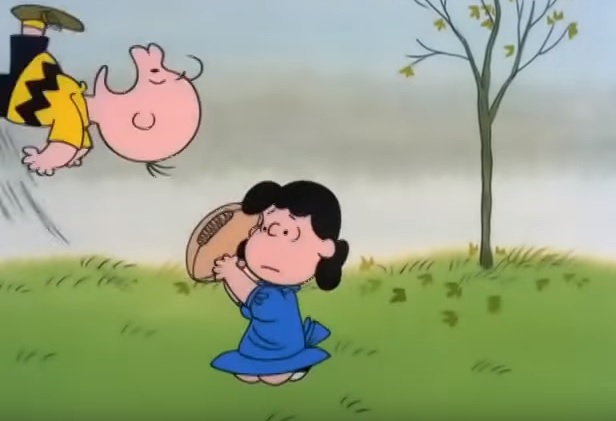Would it Matter if There Was No Bread for the Sacrament?
For several years, I was a counselor in a bishopric. A counselor is usually fairly relaxed in sacrament meeting because the bishop has ultimate responsibility to fix things that go wrong. However, that is not the case when the bishop is gone.
There came a time when the Bishop was out of town one Sunday. The other counselor and I were up on the stand, waiting for sacrament meeting to start. About two minutes before it was time, one of the priests came up to us and told us there was no bread for the sacrament. The other counselor hurried down into the congregation to ask someone to go get some bread, and I told the visiting stake president what was happening.
The stake president told me, “This is bad, the whole purpose of the meeting is for members to be able to take the sacrament.” With that statement in mind, I stood up to conduct the meeting without knowing whether we would have any bread when it was time to start the sacrament. Fortunately, the bread arrived before the sacrament and before I had to come up with some kind of ward business on the spot to delay the meeting.
After that experience, I thought about the meaning of the sacrament quite a bit. What if the reason there wasn’t any bread wasn’t that someone forgot to bring it, but because there had been no atonement? What would it be like if there was no bread because there had been no crucifixion and no water because there had been no shedding of blood? If there had been no atonement, what would the consequences be for each of us?
That is the question we need to ask: would it matter if there had been no Savior? What if the reason that there was no bread or water at the sacrament table wasn’t because someone forgot to set it out, but because there was no Jesus Christ? To understand the meaning of this question we need to ask ourselves whether we have Faith in Jesus Christ.
Triumph over Death

If Elder Dieter F. Uchtdorf could refer to The Hobbit in his last conference talk, I suppose I can use The Return of the King to illustrate a point about the first part of the atonement. There is a great scene in this movie in which a wise experienced character, Gandalf, is talking to an inexperienced, generally foolish character, Pippin. They are in a city that is being attacked by a powerful enemy and it looks like the city and everyone in it will be destroyed. In this moment of desperation, Pippin turns to Gandalf:
Pippin: “I didn’t think it would end this way.
Gandalf replies: “End? No, the journey doesn’t end here. Death is just another path, one that we all must take. The grey rain-curtain of this world rolls back, and all turns to silver glass, and then you see it.”
Pippin: “What? Gandalf? See what?”
Gandalf: “White shores, and beyond, a far green country under a swift sunrise.”
Pippin: “Well, that isn’t so bad.”
Gandalf: “No. No, it isn’t.”
Gandalf didn’t fear death because he knew there was something greater awaiting. Likewise, if we have faith in the power of the atonement, we need not fear what happens when our time on earth is done. We will all be resurrected because of Christ’s sacrifice for us, and we will be in a kingdom far more glorious than our existence now. But if we really have faith, we will aim for the highest, or Celestial Kingdom. That brings us to the second part of the atonement, the opportunity for salvation.
The Gift of Salvation

Comic strips in the paper aren’t as popular anymore because reading a printed copy of the paper isn’t as common as it used to be. But when I was growing up, people actually read the comics and one of the most popular was Peanuts, which had Charlie Brown as its central character.
There was a recurring theme where Charlie Brown’s neighbor Lucy would set a football for him to kick, and when he would run to kick it, she would pull it away so he would miss. The next time Lucy would tell Charlie Brown to kick the football, he would initially refuse. Lucy would say, “just kick the ball you blockhead, this time I won’t pull it away.” Charlie Brown would then run to kick the ball, and Lucy would pull it away.
This is why we need the second part of the atonement as much as the first: we are all blockheads in one degree or another. Like Charlie Brown, we may get pressured into sin by peer pressure or we may be slow learners. The fact is that we all make mistakes and sin.
Each of us who has sinned must have the faith to act. As it says in 2 Nephi 25:23, “For we know that it is by grace that we are saved, after all we can do.” So, what can we do? We must engage in good works, and we must repent. We don’t want to waste the second gift of the atonement by being the ultimate blockheads who fail or refuse to repent. As Samuel the Lamanite said, “whosoever repenteth not is hewn down and cast into the fire; and there cometh upon them again a spiritual death, yea a second death, for they are cut off again as to things pertaining to righteousness” (Helaman 14:16-18).
Help During Mortality

Of course, faith does not just benefit us in the life to come, it helps us now. This principle is shown by a story Elder Hugh W. Pinnock told Boyd Matheson when Matheson was discouraged about a trial he was going through:
A long time ago, there was an old man who lived in a very small village. The only possession he had was a strong and beautiful horse. The horse was his only means for providing for himself and his family. One night, a great storm arose with thunder and lightning. The horse was frightened and ran feverishly about the corral. As the storm continued, the gate to the corral was blown open and the horse bolted and ran off into the desert.
The next morning, the people of the village gathered together to take inventory of the damage from the storm. Upon hearing that the old man had lost his horse, the people of the village went to his humble home. All the people went up to the man saying, “This is a sad day. You have lost your only possession and the only means that you had to take care of your family. This is awful and truly terrible.” The old man looked at the people and softly replied, “You don’t know this is bad; you don’t know that this is terrible.”
The days went by, and one night the horse returned and brought with it 50 wild horses it had been running with out in the desert. The people of the village again gathered themselves at the cottage of the old man. The people exclaimed, “This is so wonderful and good. Now you have all these horses and all this wealth, you will never have another worry. What a great and wonderful thing!” The old man faced the crowd and whispered, “You don’t know that this is a wonderful thing; you do not know that this is good.”
The old man had a son who was one of the great young warriors in the village. He spent hours training to perfect his skills with the sword and the slingshot. One day as he was breaking in one of the new horses, he was thrown from the horse and his leg was crushed. Never again would he be able to use the skills he had worked so hard to acquire. When the people of the village heard the news, they responded again by saying, “This great young warrior is crippled; what an awful, what a terrible thing.” The old man responded, “You do not know this is so terrible; you do not know that this is a bad thing.”
Not long after the tragic incident, the cry of war was heard in the land, and the warlords came to the village and took all the healthy young men off to battle, and the majority of them were killed.
We need to realize that unlike us, and the villagers in the story, Heavenly Father understands the big picture. We need to have faith like the old man in the story. Many times, things we think are bad in the moment actually turn out to be for our benefit. We may not get the job we were hoping for or get into the school we wanted to, but this may turn out to be for our benefit. Missing out on what we want at the time might spare us from harmful situations in the future.
So how do we get Faith, and how do we make it stronger? Let’s start with what won’t be enough. Elder Quentin L. Cook often quotes Lord Jonathan Sacks, the former Chief Rabbi of the United Hebrew Congregations of the British Commonwealth, who said:
If there is one thing the great institutions of the modern world do not do, it is to provide meaning. Science tells us how but not why. Technology gives us power but cannot guide us as to how to use that power. The market gives us choices but leaves us uninstructed as to how to make those choices.
Science, technology and the market are all good things, but by themselves, they can’t help us make the choices that will help our faith grow. So, what will? Elder David A. Bednar has given us counsel that was a bit surprising until I really pondered it.
Elder Bednar said:
The overarching purpose of Heavenly Father’s plan is for His children to become more like Him. Accordingly, He provides us with essential opportunities to grow and progress. Our commitment to learn and live according to truth is increasingly important in a world that is “in commotion” and is ever more confused and wicked. We cannot expect simply to attend Church meetings and participate in programs and thereby receive all of the spiritual edification and protection that will enable us “to withstand in the evil day.”
Elder Bednar continued:
If all you or I know about Jesus Christ and His restored gospel is what other people teach or tell us, then the foundation of our testimony of Him and His glorious latter-day work is built upon sand. We cannot rely exclusively upon or borrow gospel light and knowledge from other people—even those whom we love and trust.
That is why the Church has moved towards home-centered Gospel learning. When it comes to faith, we cannot rely only on the gospel light of others—we have to have it for ourselves. This requires us to study the gospel and pray for understanding ourselves. This is the only way to build the faith to realize that the sacrament and the atonement it symbolizes really do matter to us.
How have you come to understand the atonement and all it does for you? Share in the comments.


